THIS POST MAY CONTAIN AFFILIATE LINKS. PLEASE SEE MY DISCLOSURES. FOR MORE INFORMATION.
Raise your hand if you hate paying your mortgage every month.
Not only is it your largest monthly bill, but it feels like you will never pay it off since most of your payment goes towards interest.
Frustrating times for sure.
But there are ways to pay off your mortgage early.
In fact, I highlight 11 tricks to pay off your house early below.
You can pick out the one that suits you best, or find a way to combine multiple tips to pay off your mortgage faster.
Imagine not having a mortgage payment any longer.
What would that enable you to do?
You could put more money towards retirement.
You might even be able to retire early since you no longer have a huge monthly bill hanging over your head.
Or you could find a job that you love, regardless of the pay.
In other words, financial freedom no longer is a wish, it can be a reality.
By slashing your mortgage out of your monthly budget, you could earn less, and still get by financially.
Or you could use that money to take amazing vacations every year.
Think of all the places you want to visit and experience!
What are we waiting for?
Let’s get started learning about these little known ways to pay off your mortgage fast so you can use your extra cash for other things!
KEY POINTS
Table of Contents
11 Tricks To Pay Off Your Mortgage Early
#1. Use Tax Refunds
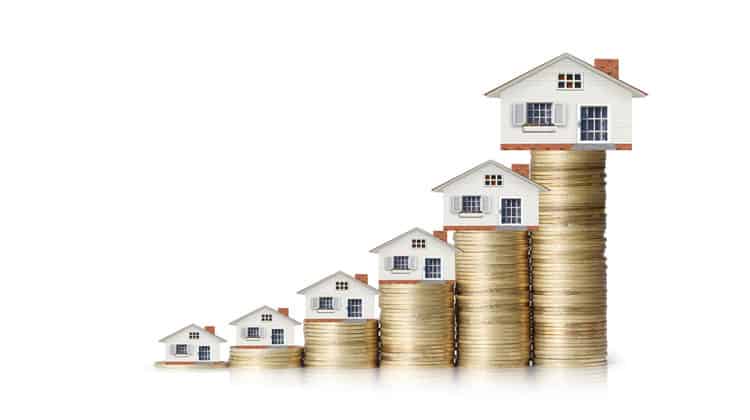
According to the IRS, the average refund for 2021 was a whopping $3,039!
I’m not going to get into the debate about getting such a large tax refund here, but I will show you the power of using your refund to make a large lump sum payment on your mortgage.
Let’s say you bought a house and took out a mortgage with a 30-year loan term for $200,000 at 5% interest.
You pay the balance due every month except for May.
In May, you make an additional one-time extra payment of $3,039, which is your refund.
What effect does this have?
If you do this for five years, you will shave more than four years off your mortgage and save over $39,000 in interest!
Use this mortgage payoff tip for ten years and knock off close to 7 years and save over $59,000 in interest!
Use this trick for the entire length of your mortgage, and you knock off over 10 years and save over $71,000 in interest!
You can easily find a mortgage calculator online to play around with the numbers to see the impact of making extra principal payments.
It can be tempting to spend your refund on something else.
But if you can put it towards your mortgage debt, you will save a ton of money.
I’ll even make a compromise with you.
Take 10% of your refund and spend it however you want.
Then take the other 90% and make a lump sum payment.
Your savings and payoff date won’t be as exciting as what I showed you above, but it’s better than spending the entire refund.
#2. Make Biweekly Mortgage Payments
Another step to paying off your mortgage early is creating a biweekly payment system.
Biweekly payments take your monthly payment and cut it in half so that you make a half payment every other week or twice a month.
The idea is that if you get paid biweekly, there are 26 pay periods in a year.
If you make 26 half payments, you make 13 total payments.
This is one extra payment a year compared to simply making a mortgage payment once a month.
This one extra payment each year adds up over time.
Some banks offer to do this for you, but they often charge extra fees, like a set-up fee or other ongoing fees.
You can skip the fees and do this yourself.
But don’t simply mail in half of your payment every other week.
Most banks won’t process it that way.
They will wait until they receive your total payment amount and then process it.
In other words, they will sit on the half payment you sent in until you send in the other half.
Then they will apply the total payment to your account.
Instead, take your payment and divide it by 12. You then pay this amount as extra principal each month for the year.
So let us use the example above of a $200,000 mortgage at 5% for 30 years.
Your monthly mortgage payment is $1,074. If you divide this by 12, you get $89.50.
Each month you pay $1,163.50 towards your mortgage.
This total is your regular payment of $1,074 and the additional $89.50.
There is usually a line for an additional principal payment on the remittance slip you send along with your check.
Put the extra $89.50 on this line.
If you pay online, there is usually a place for noting extra principal.
Come to the end of the year, and you will have made one extra mortgage payment, the same as setting up a bi-weekly mortgage payment.
Following this technique will knock off close to 5 years on your mortgage, and the interest you save is over $33,000.
#3. Use Credit Card Rewards
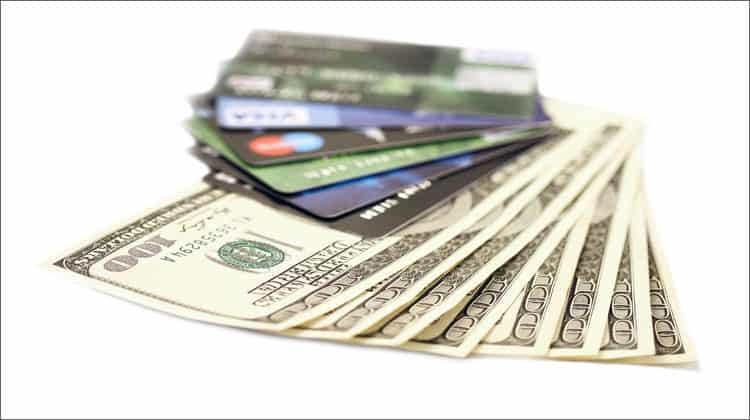
Wouldn’t it be great to use credit card rewards to repay your mortgage faster?
You can!
We had our last mortgage through Wells Fargo, and one day when I logged into our account, I saw a note about their Home Rebate Card.
For the first six months, you earn 5% cash back on gas, groceries, and drugstore purchases and 1% on everything else.
After six months, you earn a flat 1% on purchases.
The nice thing about the card is that there is no annual fee, and the cashback gets automatically transferred to your mortgage principal.
Unfortunately, Wells Fargo retired this card.
But you can still do this mortgage payoff trick and pay off your mortgage fast.
Here is the process.
- Open up an American Express Blue Cash Preferred Card.
- Put your groceries and gas on this card since you earn 6% and 3% cash back, respectively.
- Open up a CIT Bank savings account.
- Redeem the cash back on the Amex card for a statement credit.
- Transfer that amount from your checking account to your CIT Bank savings account.
- At the end of the year, use this money to make an extra mortgage payment.
You make the transfer from checking to savings since you never had to pay the amount you took a statement credit for.
If you spend $150 a week on groceries and $50 a week on gas, you would earn $625 a year in cash back.
Apply this to your mortgage once a year, and you knock off over three years and save more than $20,000 in interest!
Of course, you want to avoid going into debt when doing this. Otherwise, the point of paying off your mortgage early is lost since the interest payments will cancel out the cash back you earn.
So make sure you are smart about how much you spend when taking advantage of this mortgage payoff trick.
#4. Pay Extra At The Start
As I mentioned at the beginning of this post, when you first start making payments on your mortgage, you pay mostly interest.
As you move towards the end of your mortgage, you pay mainly the principal.
This is because the mortgage company wants their money back first.
Being smart and making extra payments at the start of your mortgage will lower your principal balance faster, saving you thousands of dollars and paying off your mortgage early.
Let’s use the same example from earlier ($200,000 loan at 5% for 30 years).
Only this time, we will make an extra $100 payment each month for five years.
Doing this shaves off close to 2 years of your mortgage and saves close to $17,000 in interest.
If you can afford to put $200 extra towards your monthly mortgage for the next five years, you knock off two years of your mortgage and save over $31,000 in interest.
And if you can always put $200 extra towards your mortgage, you will pay it off nine years early and save $61,000 in interest.
#5. Refinance
When you refinance, you either get a lower interest rate or shorten the term of your mortgage.
Doing this will help you pay off your mortgage faster and save money.
Sometimes, when interest rates drop by a reasonable amount, you can shorten your term and interest rate and still have the same payment.
The amount of your savings will vary based on your mortgage rate, the loan term, and your loan balance.
If you refinance from a 30-year mortgage to a 15-year loan, you will have a higher monthly payment in most cases.
But you will save thousands of dollars in interest because you shortened the term.
The main downside to refinancing is the closing costs.
Typically they run between 2% and 5% of the loan amount.
You could roll them into your new mortgage, but you are also paying interest on that money.
You are better off just paying the closing costs out of your pocket and not rolling them into the refinance.
Some banks will offer no closing cost refinancing, which can be a great way to save some money.
Just compare their rate to another bank to ensure they aren’t charging you a higher interest rate.
Another downside is a cash-out refinance, where you take out the equity in your home and end up with a bigger home loan than you had before.
While it can be tempting to access the equity you built up, the larger home loan will make it harder to pay off early.
#6. Pretend To Refinance
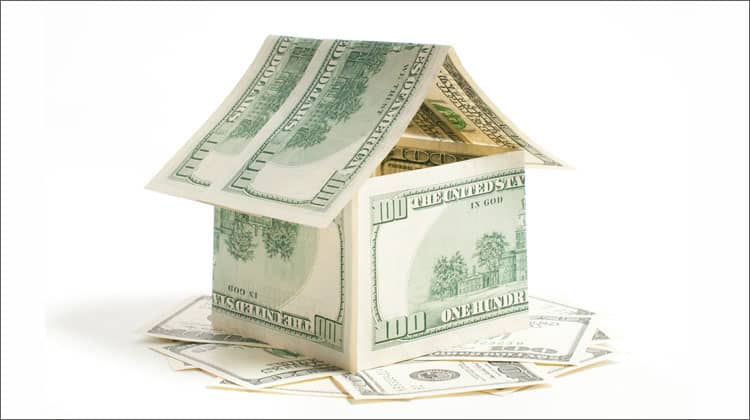
Because of the work involved with refinancing and the closing costs, there is another option to save money and pay off your mortgage fast.
It’s called a fake refinance.
Simply use a mortgage calculator to determine how much a monthly payment would be on a refinance.
Then commit to making that payment monthly without spending the money to refinance.
For example, let’s use the same numbers, a $200,000 mortgage for 30 years at 5%.
A refinance of $200,000 at 3.25% on a 15-year mortgage would have monthly payments of $1,400.
Right now, you are paying $1,074 per month.
If you don’t refinance and are five years into your mortgage and start paying $1,400 each month, you will pay your mortgage off ten years sooner and save close to $55,000 in interest charges.
That is some serious savings!
The only catch here is that you must be committed to paying the fake refinance amount rather than just your standard payment.
Also, you will not get a lower monthly payment than you would if you completed a refinance.
#7. Round Up Payments
Rounding up your payment is also a little-known way to pay down your mortgage quickly.
As I mentioned, your current payment is $1,074. What if you rounded up to $1,100 per month?
That is just $26 more each month.
While you would only knock 2 years off your mortgage, you would save over $10,000 in interest charges.
A couple of dollars doesn’t sound like much, but it makes a difference.
On our mortgage, if I pay just $6.85 extra per month, I save over $3,300 in interest over the life of the loan.
So don’t think a couple of extra dollars isn’t worth it.
Put anything extra you can towards your mortgage each month.
To help with this, use Qapital.
This app rounds up purchases and puts the money into a savings account.
Let the roundups accumulate for the year, then make one extra payment on your mortgage.
Use Qapital to round up your purchases and to transfer money based on rules you set up. It's fund and easy to use. Get a $25 bonus once you make your first deposit.
#8. Recast Your Mortgage
If you are not interested in refinancing or interest rates are higher than your current rate, you can see if you have the option to recast.
Recasting is when you update the payment based on a lower principal balance, and remaining term, while keeping the same interest rate.
Some mortgage lenders will allow you to recast, while others won’t, so it is important to ask.
You often need to have a mortgage for at least two years and have paid down the mortgage loan by $20,000 or more.
The benefit of this option is that when you refinance, you start the process over again.
You could save tens of thousands of dollars in interest by choosing to recast instead.
How To Pay Off Your Mortgage In Half The Time
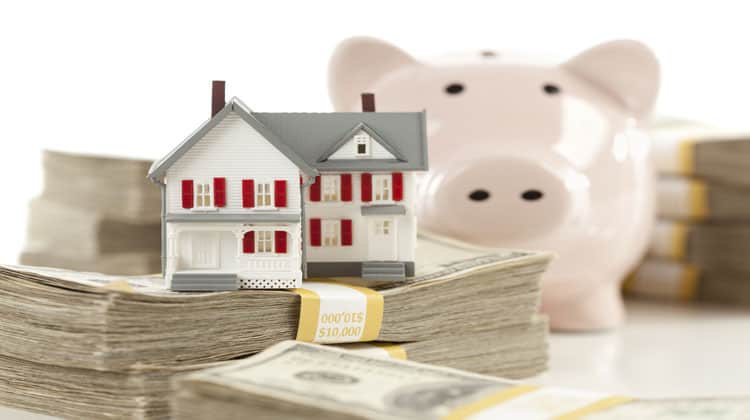
What if we combined some of these little known mortgage payoff tricks?
Could we cut our 30-year mortgage in half?
Which two tips sound the most reasonable to use?
Let’s combine rounding up with paying extra at the start of the mortgage.
These allow for the most flexibility and will show us what a little extra payment does in the long run.
#9. Paying Extra And Rounding Up
For this example, we will round up $26 each month and pay an additional $125 each month.
So our new payment is $1,225 per month.
With this method, you knocked off about eight years and saved around $50,000 in interest.
Not bad for a small sacrifice, but we couldn’t cut a 30-year mortgage in half.
Let’s try another combination.
#10. Biweekly Payments And Your Tax Refund
While the above option is great, let’s combine our tax refund and a biweekly payment.
Add $72 to your regular payment each month and use your entire refund to pay off the mortgage early.
Combining both options will knock off 12 years and save over $82,000 in interest.
The only catch here is that a $3,000 refund each year is not a given.
It could change, which could change your mortgage payoff as well.
This gets you closer, but you still aren’t able to pay your mortgage off in half the time.
#11. The Most Brilliant Way To Pay Off Your Mortgage
Finally, here is the fastest way to pay off your 30-year loan.
It will allow you to cut a 30-year mortgage in half.
This is for people who want to destroy their mortgage as quickly as possible.
To do so, we will use the following approach.
- Use your tax refund. We will assume the average refund of $3,000 but only use $2,000, so you can do what you want with the rest. This will also help us in the coming years since a refund can change depending on your financial situation.
- Open cash back credit card. We will assume $1,000 in rewards yearly to pay extra on the mortgage.
- Round up. We will use Qapital to round up our purchases and transfer that money to our mortgage annually. We will assume $750 in annual roundups.
- Pay extra. Finally, we will make additional payments of $150 extra a month towards the mortgage.
What is the result of all of this?
You will pay your mortgage 15 years early and save over $98,000 in interest.
Of this extra amount we are paying each month, you only need to come up with $150.
This is because the credit card cashback and the roundups from Qapital are from your spending.
How can you come up with an extra $150 a month?
- Read now: Here is the best use of your excess cash
How To Make An Early Payoff Of Your Mortgage A Reality
All these options to get rid of your mortgage early sound great in theory.
The problem is that you need more money to pay extra on your mortgage each month.
As it stands now, money is already tight.
What can you do to earn extra money and pay off your mortgage faster?
There are all sorts of ideas out there.
Cutting a few monthly expenses and doing a little work on the side could bring in $250 extra each month.
It may seem like a small amount, but it makes a big difference in the long run.
If you combine some of the tricks to pay off your mortgage faster and put this extra $250 you earn towards your mortgage each month, you could pay off your mortgage in 10 years.
Finally, you can keep track of your progress with Personal Capital.
I use this to get a quick look at our net worth and investments.
I can track the payoff process by adding my mortgage and house value.
The reason I do this is for motivation.
Sometimes you would rather buy something you want than put the extra money into your mortgage.
But then I log into my Personal Capital account, see the progress we made and how close we are getting to being mortgage free, and it helps to get me excited again.
So I highly recommend doing this as well.
Want to know where your investments stand? Interested in a free financial plan to see if you are on track for retirement? Personal Capital has you covered. It's the best free tool for the average person to analyze their investments.
Frequently Asked Questions

Here are the most common questions I get asked when it comes to paying off your mortgage early.
How much money will I save if I make two extra mortgage payments a year?
This depends on your current loan amount, interest rate, and other factors.
But let’s give an example to give you a rough idea.
If you have a loan of $200,000 at 4% interest for 30 years and make just two extra payments a year, you will save over $37,000 and knock off seven years from your loan.
Therefore, making two extra mortgage payments a year is worth it.
Is it wise to pay extra principal on my mortgage?
For most people, the answer is yes.
By paying extra monthly on your mortgage, you save money on interest and pay your mortgage off early.
Do it even if you can only pay an extra $10 or $20 a month.
For example, if we again look at a $200,000 loan at 4% for 30 years, paying just $20 extra a month saves you over $6,000 in interest.
However, before making any extra payments, check to ensure there are no prepayment penalties.
These are rare nowadays, but you want to avoid these fees.
You can either read through your loan documents or call your current mortgage holder to get the answer.
Finally, when paying extra on your mortgage, ensure the extra is going towards the principal balance.
Most payment slips allow you to put the extra money towards the principal or escrow.
By selecting the correct box, you ensure your extra monthly mortgage payments are helping to pay down your loan balance.
Is it smarter to pay off my mortgage or invest my money?
I get asked about if paying off debt or investing your money is better all the time.
The only reason you would not pay extra principal on your mortgage is if you could earn a higher rate of return investing your money.
But even then, you need to be highly disciplined and invest the money.
I’ve seen too many people with good intentions spend money instead of investing it.
They will start out investing the $20 a month, but eventually, they will give into temptation and use the money for something else.
Here is an excellent article about combining both ideas and coming out ahead.
How can I pay off my 30-year mortgage in 10 years?
No one option will help you to pay down a 30-year loan in 10 years.
You are going to have to use a combination of ideas.
Just know that it will take sacrifice.
Let’s go back to our example of a 30-year mortgage at 4% for $200,000 with a payment of $955. each month
To pay this off in 10 years, you must pay an extra $1,070 monthly.
How can I pay off my mortgage in 7 years?
Paying your mortgage in 7 years will take a more significant commitment than paying off your mortgage in 10 years.
With a $200,000 loan for 30 years at 4%, you must pay an extra $1,765 monthly.
Not impossible, but you need to use the ideas I outlined above to find the ones that will make this a reality.
Is it better to get a 15-year mortgage or pay extra for a 30-year mortgage?
If you can afford the monthly payments, a 15-year mortgage is the better option.
This is because you will pay a lot less interest and be mortgage-free 15 years sooner.
For example, let’s look at $200,000 at 4% for both 15 years and 30 years.
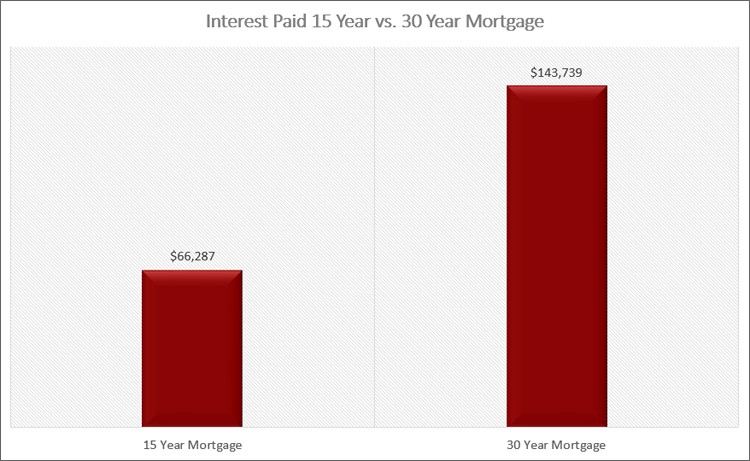
With the 15-year mortgage, you pay less than $67,000 in interest. With the 30-year mortgage, you pay close to $144,000 in interest.
That is a difference of more than $77,000 in interest alone!
What is the best way to be mortgage free?
The best way to be mortgage free is to buy a house you can easily afford and make the largest down payment possible.
Then take out a 15-year mortgage and pay extra to pay off the loan early.
If you do this, you can pay your house off in less than ten years.
The most important parts are the sizeable down payment and buying a house you can afford.
Should I make it a priority to pay off my mortgage early?
Most people will benefit from paying off their home loans early.
The reason is that this is usually their most significant monthly bill, and getting rid of it will improve your monthly cash flow.
However, making larger monthly payments should not come at the expense of your retirement savings, building up an emergency fund, or paying off other higher-interest debt.
Also, you need to consider your financial goals.
Not having a mortgage is important if you want to retire early.
But if your interest rate is low and you can afford the payment, then paying it off is not as high of a priority.
Will paying off my mortgage early increase my taxes?
A valid concern for some people is that when you no longer have a mortgage, you will not be able to take a mortgage interest tax deduction.
It is important to remember that the deduction you do get to take is a percent of the total interest you pay.
For example, if you paid $10,000 in interest and are in the 15% tax bracket, you can only write off $1,500.
While this is a nice write-off, you must remember that you still pay an additional $8,500 in interest.
By getting rid of the payment, you save $10,000 and not $1,500.
Final Thoughts
So there are a handful of little known ways to pay off your mortgage early.
The real key is to combine tips to supercharge your effort and pay off your mortgage in half the time.
The more money you can throw at your monthly mortgage payment, the quicker you will pay it off.
But even then, it will take time.
A mortgage balance is a large amount of money, and you can’t pay it off overnight.
But don’t let this deter you.
It can be one of the smartest financial decisions you ever make.
Keep your eye on the goal of paying off your mortgage.
Imagine what it will feel like not to have that payment any longer and what you will do with the money instead.
Any extra amount you can pay each month not only shaves off the time you have to pay but also saves you money in interest charges along the way.
And that interest savings adds up.
- Read now: Learn the pros and cons of paying off your debt early
- Read now: Use Dave Ramsey’s baby steps to improve your finances
- Read now: Discover the difference between good debt and bad debt
I have over 15 years experience in the financial services industry and 20 years investing in the stock market. I have both my undergrad and graduate degrees in Finance, and am FINRA Series 65 licensed and have a Certificate in Financial Planning.
Visit my About Me page to learn more about me and why I am your trusted personal finance expert.




I had a bi-monthly mortgage several years back and would recommend one as a way to pay off a mortgage early. The fees are usually minimal and you can knock up to 10 years off and save thousands!
My wife set up a bi-monthly payment plan on her house when she refinanced. It’s a simple way to get an extra payment in every year. The best part is that at the time, they didn’t charge a fee (though looking back it was probably hidden somewhere in the refi docs.)
I’ve also read that if you pay your mortgage in bi-monthly payments, you knock off a lot of interest in the end. So, if you combine a couple of these tips with the bi-monthly plan, you can definitely super-charge your mortgage payment.
That’s the key, combining a few of the tips to really make a difference. We are currently using a bi-monthly payment plan to get in an extra payment and are going to start saving some extra money here and there to apply even more towards our principal.
Pay off your mortgage quickly and lower your interest rate too! Leaving your hard earned cash sitting in your checking account only benefits the bank. How? The bank uses our balance as security to borrow up to thirty times and then either invest or lend the borrowed funds. Currently, they are borrowing the money at 0%. What a deal!
Use a line of credit to duplicate their system. The only reason for using the line is to build financial wealth. The funds drawn from the line of credit are applied as an additional loan payment. Withdraw the funds the same day you receive your income. Keep your balance to a minimum by immediately shifting ALL of your income to the line of credit as a loan payment.
Second, reschedule all of your living expenses to the end of your line of credit’s billing period. Doing this keeps your line of credit balance low all month long. You are now using your income to reduce the interest that you’ll owe the bank. The best part is you will soon more income that you can immediately apply to your line.
The additional payment you made immediately drops the balance on your loan accelerating your amortization schedule. This can work for any loan enabling you to borrow money from the bank with an effective interest rate of 1 to 2 percent. Depending on how much money you have after your bills are paid, You can easily payoff a 30 year mortgage or a student loan in half the time. This strategy beats any other payoff strategy. It is simple and safe.
To learn more read my recent article, ‘Pay Less Interest on Your Line of Credit’ http://goo.gl/sl6OQB. Feel free to drop me a note!
When we refinanced, we took a 30 year mortgage for flexibility, but then calculated how much we would have to pay to get it paid off in 20 years. So far so good!
Everyone’s situation is different. I know that for some, taking the mortgage out to the full 30 years makes sense because they need the cash flow. For others, it makes sense to get the lower interest rate. At the end of the day, you have to figure out what your needs are.
Wow Jon, powerful content there.. These are great and easily actionable tips. If only more people thought about knocking off debt logically like this.. Then again it really is all about the discipline, which is what people lack..
Looking forward to getting into investing in property over the next few years 🙂
So true Jef. Just a few small extra payments each year could mean a huge savings in the long run. Unfortunately, too many people are stuck in short-term thinking.
Great list. I will be bookmarking this 🙂
As someone who just bought his house this summer and new to mortgage, my wife and I are looking into strategizing our funds to balance between investing and mortgage paydown. We dont want to use the full term of the mortgage, so we will be looking into paying it down faster.
Best wishes
R2R
Finding a line between the two is important. For my wife and I, we make it a point to pay more on our mortgage each month, just to save in interest over the long-term, but we make sure we still invest as much as we can too. Investments will earn us 8% annually whereas our house is a place to live. If we need money, we won’t be selling it and we would rather not take a loan out against it just to get by.
Great post! We’ve been all about aggressively paying off the mortgage since we bought the house almost 4 years ago. When we bought it, we didn’t have 20% down and were paying PMI. We aggressively paid extra each month (used strategy #6…pretend to refinance) and thankfully experienced some appreciation in the price. After two years we actually refinanced (#5…refinance) and removed PMI AND got a lower interest rate. Instead of paying the new lower monthly payment, we utilized #7 (round-up) and paid a bunch more each month and have until this day. I like the credit card reward idea (#3) but my wife and I prefer to take a vacation each year (for free) on credit card points. #2 is interesting and might be something to look into though! Making 2 payments each month instead of just the one! Thanks for the post and the idea!